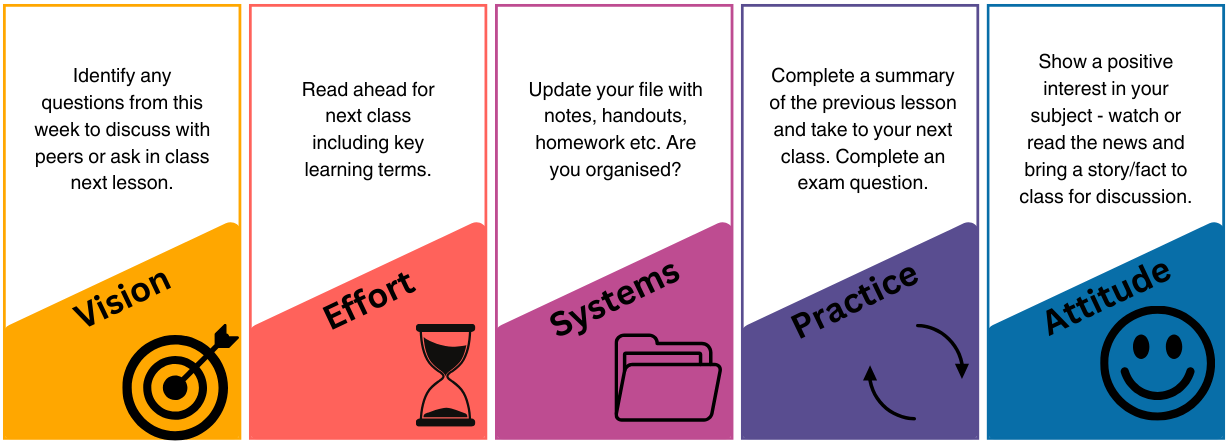VESPA
The VESPA model is a framework designed to help students develop effective study skills. It focuses on five key components:
Vision
Vision is about having a clear goal; it's about making the connection between the work you are doing and the reason for doing it. In simple terms its about knowing the outcomes you want to achieve.
Effort
Sometimes called "academic perseverance" effort refers to how much hard work you do. It is fair to say that the absence of effort pretty much guarantees failure; however more effort on its own is not a guarantee of success.
One of the most important messages to transmit to students is the 'myth of effortless success'. Pupils only get to understand this when they see and hear the amount of effort that has generally gone into a successful performance.
Systems
Systems is about two things:
1) A System to organise learning so students can make sense of everything
2) A System to organise their time so students can complete key tasks to meet deadlines.
For many students, academic challenges are related more to lack of organisation than to a lack of intellectual ability (Hassanbeigi, 2011). We have also found a clear link between students who are underperforming and poor organisation and project management skills.
Practice
Practice represents exactly what learners do with the time they put into their studies. Not the "How much" of study but the "How".
Practice doesn't make perfect; deliberate practice makes perfect. In other words, effort alone is not enough to guarantee success. Academic progress is as much about how you work as it is about how long you work. Many pupils who are putting in large amounts of time and effort but not making progress, are very often working on the wrong things.
Attitude
We believe there are four elements to developing students attitude (in relation to performance virtues). These are confidence, emotional control, academic buoyancy and growth mindset.
Confidence is key to success in any field, and students can very quickly lose confidence if they are unable to recognise their achievements and progress.
Emotional control is especially important to deal with stress of public examinations and overcome the weight of expectation many students feel at this time.
Developing academic buoyancy allows students to see critical feedback as a way of improving, and learning how to bounce back after disappointing test results.
Finally students need to believe they can improve, without believing their intelligence is fixed or gifted, the importance of developing a growth mindset is critical.
By focusing on these five areas, students can improve their overall academic performance and develop valuable life skills.

